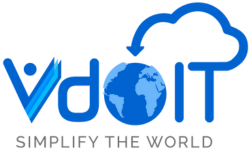Distributed ledger technology or blockchain technology is still relatively a new technology but it has the potential to revolutionize the way organizations share data. By making data sharing more secure, transparent, efficient, and accurate, blockchain can help organizations to improve their operations and make better decisions.
Let’s try to understand that “How does blockchain technology help organizations when sharing data”, in 5 points.
- Importance
- Benefits
- Blockchain technology in data sharing
- Case Studies
- Conclusion
Importance of blockchain technology in data sharing for organizations
Data sharing is essential for organizations as it promotes collaboration, facilitates innovation, improves operational efficiency, enhances the customer experience, enables data-driven decision-making, and supports regulatory compliance.
Key takeaways:
- Collaboration and decision making:- By sharing data, employees can access relevant information from various sources, enabling better collaboration and informed decision-making. It allows different stakeholders to work together, share insights, and collectively solve problems, leading to improved operational efficiency and effectiveness.
- Insights and Innovation:- Sharing data encourages cross-functional learning, idea generation, and the discovery of new opportunities or solutions. It can lead to innovation, new product development, process improvements, and competitive advantages.
- Data-driven decision making:- Organizations need accurate and up-to-date information to make informed decisions. Sharing data ensures that decision-makers have access to comprehensive and reliable data sources. Data sharing enables organizations to identify trends, spot potential risks, and seize opportunities in a rapidly changing business landscape.
- Enhanced customer experience:- Data sharing empowers organizations to provide seamless customer interactions, leading to improved satisfaction and loyalty. By sharing customer data across different touchpoints, departments can gain a comprehensive understanding of customer preferences, behaviors, and needs. This knowledge helps in delivering personalized experiences, targeted marketing campaigns, and tailored products or services.
- Data Governance:- By sharing data within a controlled and authorized framework, organizations can ensure adherence to privacy regulations, security standards, and data protection laws.
Blockchain Help in Sustainability Efforts
Benefits of data sharing for organizations
Increased security
Each block is encrypted and linked to the immediately preceding block using complex algorithms, making it virtually impossible for hackers to tamper with the data.
Improved transparency
It improves transparency by providing a secure, decentralized, and immutable ledger.
Enhanced data management
We have seen how encryption, access control, and consensus ensure the security of immutable data and how smart contracts eliminate the need for intermediaries.
Improved traceability
Since blockchain technology creates tamper-proof permanent records at each transaction level, it becomes easy to track and trace the accountability of each participant in the blockchain. This leads to greater transparency.
This is How Blockchain Technology is impacting Data Sharing for Organizations throughout the Globe
- Decentralization and Transparency:- Blockchain technology functions as a decentralized and distributed ledger, where numerous participants collectively maintain and authenticate data. By eliminating the requirement for a central authority or intermediary, organizations can directly share data with one another. The transparency inherent in blockchain ensures that all participants possess identical access to the shared data, minimizing discrepancies and fostering trust.
- Data Integrity and Immutability:- Blockchain technology employs cryptographic algorithms to safeguard the data stored within the network. Each new transaction or data entry is connected to the previous ones through cryptographic hashes, creating a sequential chain of blocks. Once a block is appended to the chain, it becomes exceedingly challenging to modify or manipulate the data within, thereby ensuring the integrity and immutability of shared information. This characteristic proves particularly valuable when sharing crucial or sensitive data among organizations.
- Smart Contracts and Automation:- Smart contracts empower organizations to automate data sharing procedures by automatically executing actions or transactions when specific pre-established conditions are fulfilled. For instance, organizations can utilize smart contracts to automatically update and share data according to predetermined rules, eliminating the necessity for manual intervention and minimizing administrative burdens.
- Enhanced Customer Experience:- In the network, every participant possesses a distinct cryptographic key, guaranteeing that only authorized entities can access and engage with the shared data. Furthermore, blockchain technology enables organizations to selectively share data by granting permissioned access solely to specific participants. This capability of selective sharing enhances privacy and control over sensitive information, enabling organizations to collaborate while upholding data confidentiality.
- Auditability and Traceability:- Each transaction is meticulously recorded in a time-stamped and unchangeable manner, establishing a traceable record of data exchanges. This attribute empowers organizations to track and authenticate the source, validity, and flow of shared data, proving particularly valuable in industries where regulatory compliance or data provenance holds paramount importance.
Case Studies: Use case of blockchain in healthcare
- Patient data management:- The implementation of blockchain technology ensures the secure storage and sharing of patient health records, presenting a unified and interoperable overview of an individual’s medical history. One notable project is MedRec, a blockchain-based system developed by MIT researchers, which allows patients to manage and control access to their medical records across healthcare providers. It ensures data integrity, privacy, and patient consent.
- Health Information Exchange:- Health Information Exchanges (HIEs) like Medicalchain and Coral Health leverage blockchain to enable interoperability, consent management, and secure data exchange between different healthcare organizations, ensuring seamless and trusted data sharing.
- Clinical Trials and Research:- Clinical trial platforms like Embleema leverage blockchain technology to enable secure data sharing and consent management between patients, researchers, and regulators, facilitating more efficient and reliable research processes.
- Drug Supply chain and Authentication:- Companies like Chronicled and Blockpharma are utilizing blockchain to create immutable records of drug transactions, ensuring the integrity of the supply chain, preventing counterfeit medications, and improving patient safety.
Use case of blockchain in Banking and Finance
- Cross Border Payments: Financial institutions like Santander and Standard Chartered have partnered with Ripple to leverage its blockchain technology for efficient and transparent international payments.
- Trade Finance: Marco Polo Network, powered by blockchain technology, enables real-time data sharing among banks, corporates, and trading partners, enhancing transparency, reducing fraud, and accelerating trade finance processes.
- Know your Customer(KYC) and Anti-money laundering(AML): the consortium-based platform called Corda was used by a group of banks in the United Arab Emirates to create a blockchain-based KYC solution, enhancing data privacy and streamlining customer onboarding processes.
- Securities and Asset Management: The Australian Securities Exchange (ASX) is implementing a blockchain-based system called CHESS (Clearing House Electronic Subregister System) to replace its existing clearing and settlement system, enabling real-time data sharing and reducing settlement risks.
Conclusion : Use case of blockchain
Blockchain technology offers organizations a dependable, secure, and transparent means of sharing data. Its decentralized approach to data storage and sharing, combined with its immutability, transparency, and security features, revolutionizes data sharing across industries. However, organizations must carefully consider key aspects such as security, consensus mechanisms, and data privacy when adopting blockchain technology to fully leverage its benefits. Don’t get left behind by the rapid pace of technological advancements. Instead, embrace them and maximize their potential.
Our team of skilled professionals, who have extensive experience working on multiple blockchain projects, is here to support you.
As a prominent Blockchain Development Company located in Gurgaon, we provide comprehensive Blockchain Development services to help you fully utilize the benefits of blockchain technology.
Contact us:- info@vdoitech.com

